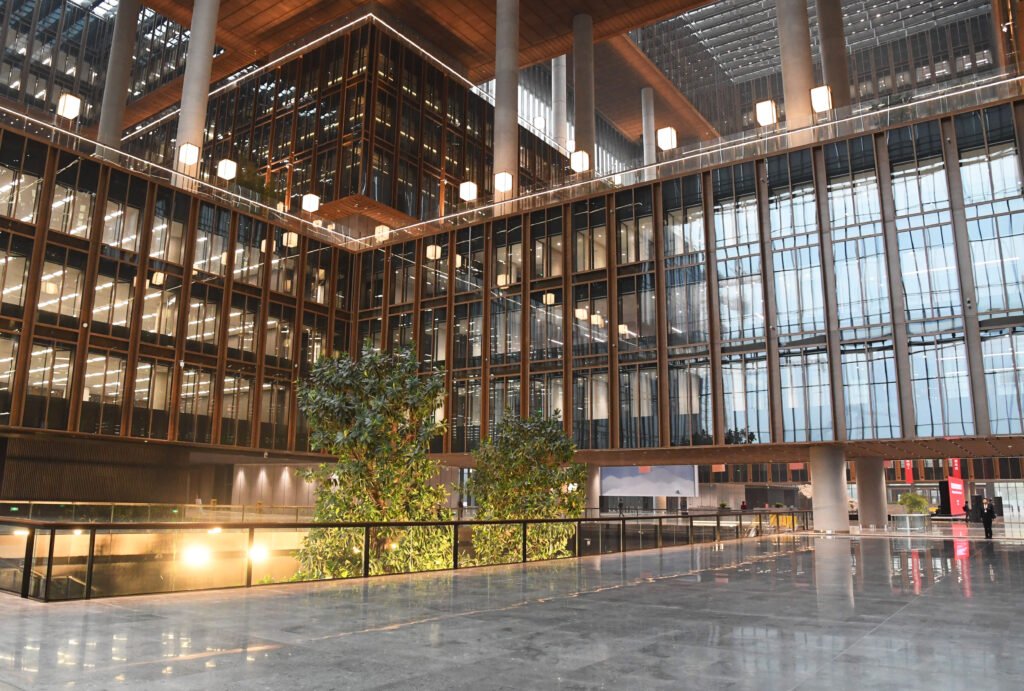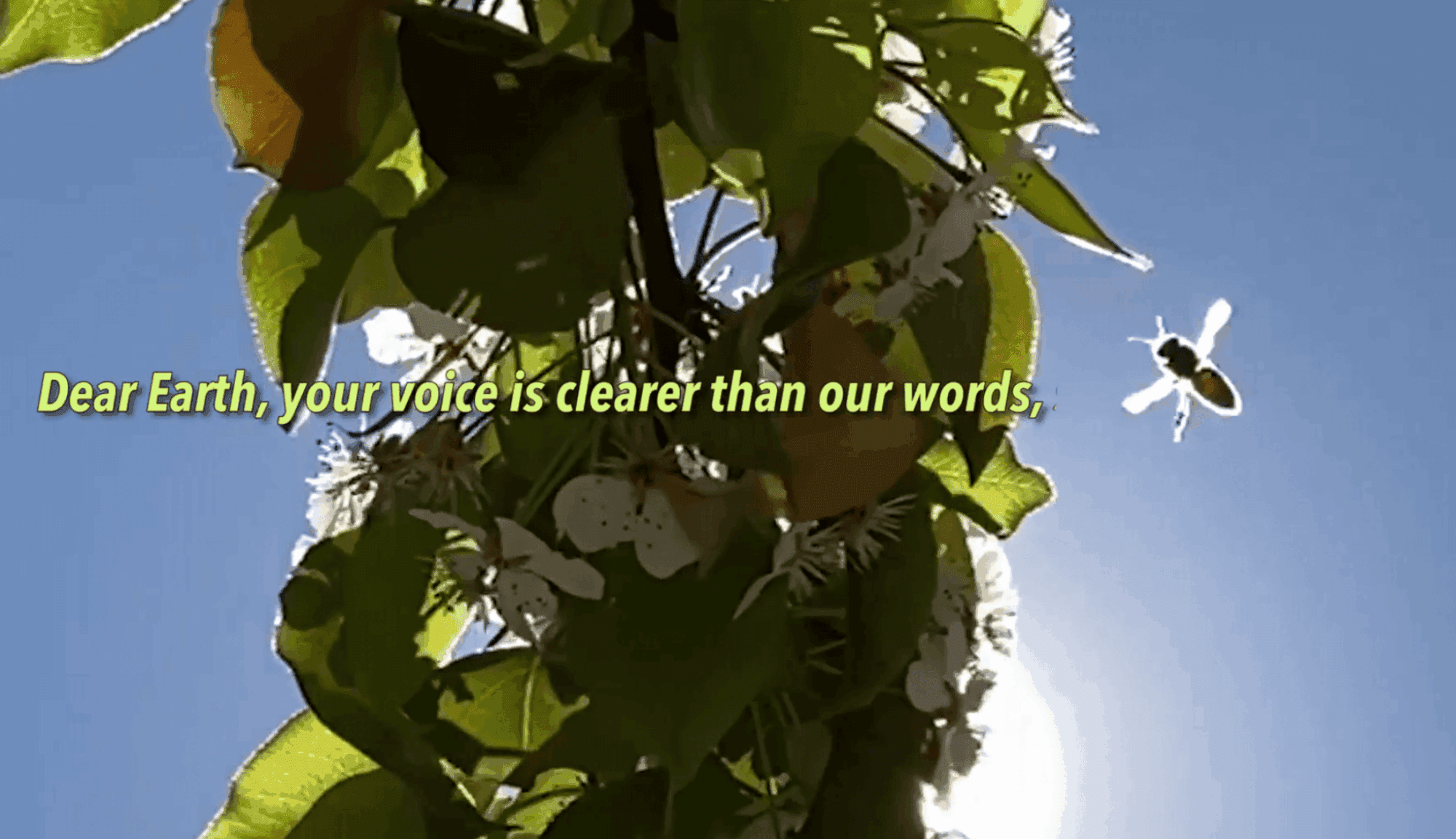
China does not have a One Bank One Index economic-ecological accounting scheme to complement its One Belt One Road infrastructure and development plan, but it should since it is well-poised to be the leader in infrastructure and debt financing for the Global South.
However, to say that a One Bank One Index (OBOI) accounting scheme does not exist is simply another way to unveil strategies for an ecological post-pandemic economy that could potentially fill a vacuum caused by a series of economic downturns that began with the Wall Street collapse in 2008 and culminated into the miasma of our global pandemic economy.
China’s leadership in the implementation of the Paris Agreement, SDGs (esp. poverty reduction) would be confirmed and enhanced by supporting an economic-ecological index.
We need to explore more equitable accounting schemes to address the problem of global leadership, national/regional development, and sustainable local and rural livelihoods
The recent G7 summit and Biden’s Build Back Better World (B3W) suggests that the Western economies will seek to push forward an aggressive model for ecological accounting and this is not likely to bode well for the Global South. We need to explore more equitable accounting schemes to address the problem of global leadership, national/regional development, and sustainable local and rural livelihoods. China, who retains its position of solidarity with the Global South, is well-positioned to be the normative source of economic value and infrastructure financing that should be considered dominant.
When the UN Statistical Division announced their revision to the GDP System of National Accounts last March, the framework may have lacked specificity as to how accounts would be treated, but the language is clear: national accounting systems will no longer “be heedlessly allowing environmental destruction and degradation to be considered economic progress.”
Taken at face value, there is a lot to celebrate with that expression. But considering that most of the proposals for natural accounting systems were devised by institutions in the advanced economies with little participation from the South, indigenous or other impacted peoples, it is difficult to see environmental accounting as a truly global initiative.
Those in ecosystem financing are mostly aware of controversies with Cap and Trade, or the exclusionary policies of Big Conservation where large swaths of blue/green spaces of oceans and forests would be managed and accounted for by the large economies using technologies from Dept of Defense sub-contractors. Yet, apart from a few critical minds, there remains little in the way of addressing these flaws.
Much of the logic behind the adoption of these conservation enclosures is simply the urgency of something needing to be done, and since Western interests continue to paint China as a bogeyman across all sectors, it would appear that if there is nothing better on the horizon, then the global initiative is to pursue the hegemonic enclosure with all its flaws intact.
The China-led One Belt One Road is operationally an infrastructure and development initiative, delivering the Global South new access and opportunity in trade of goods and services. While it does bring advantages to China, it does not accomplish this through privatization regimes, enclosures, destabilization of democratic governments, or economic rights abuses that it is often accused of.
What is factual, is that without interference, the Belt and Road Initiative has the technological and institutional structure that would support countries and regions to participate in a much more viable market without being compromised by the neoliberal financialization and militarization of containment, obstruction and destabilization.
When we trace the evolution of the UN SEEA for example, beginning in the 1990s, textual language marks the evidence of how institutions shifted from “degradation and depletion” to corporatization and private investment. This arrangement was not simply that of a practical matter, it was a structured and deliberate agenda motivated by the very groups that would seek to benefit from our ecological crisis.
Revising our national accounts to include ecosystem services does not preclude that this was merely an exercise in corporate conspiracy, but rather an existential necessity if we are to ever restore our environment. And while the potential crisis that awaits is the competition for global climate leadership, ecological economic accounting schemes like our Intemerate Equation provides an equitable approach to the distribution of global wealth by providing a comprehensive accounting scheme whereby ecological-economic benefits are equitably received.
Foreboding initiatives already suggest that remote peoples may soon be desperate enough to be manipulated into abandoning their homes without a fight. Australia, for example, has proposed that Tuvalu swap national territory for citizenship. Each extreme weather event brings impacted peoples that much closer to embracing the faux-generosity of exploitative interests.
But what of a One Bank One Index?
The combination of several factors that include our present global pandemic: the rise of the Belt and Road Initiative and the benefits it provides for the Global South, new multilateral institutions like the AIIB, the BRICS-led Contingency Reserve Arrangement, the Cross-Border Interbank Payment System, advanced communication technologies including the release of Huawei’s Harmony OS, open-source AI technology like the ARIES for SEEA, and a new data economy all cohesively line up for a relatively seamless transition into a new ecological-economic global economy.
This global transition should be a boon for the Global South. New infrastructure and alternative financing alignments provide regions with an opportunity to choose ecological restoration over degradation and depletion. It is a roadmap to reverse decades of exploitation and embraces new service sectors for labor, development of specialized technologies and intellectual properties, and open the door for new financial sectors where entire communities can own, package, market, and invest in restoration schemes with or without already established financial institutions.
A People’s Prospectus could circumvent Wall Street, bypass hedge fund managers, ignore transnational privatization regimes, and engage in financial markets where they would hold the equity and benefit from their own services in what we might call trans-local, inter-global trade.
What a People’s Prospectus could deliver is a missing piece of the puzzle for the global economy, which is how we foster sustainable livelihoods in rural and isolated communities that complement highly risky involvement in agricultural or extractive production.
What happens if the people manage their data commons? What happens if our ecological data were stewarded by those who are customarily engaged with local biodiversity? Who profits when ecological restoration packages are created by those very communities who would benefit from local restoration services?
The “ownership” or management of that data would not fall under the manipulations of insurance companies or Wall Street investment funds, but rather the communities that would seek to ensure their own wellbeing and profit from investing in their own labor and intellectual property.
To reduce socio-ecological and economic risk and uncertainty requires local control of “private property” in the form of local intellectual property. This type of control would strengthen ties to rural communities, allow poor families to plan families around sustainable income and reduce the risk involved with urban-rural migration. In other words, ecological data promotes social cohesion and a sense of belonging, while providing a sustainable alternative source of income or credit to local authorities, even as data is aggregated and channeled through national and global infrastructure, in alignment with our vision for a One Bank One Index program within the BRI.
A People’s Prospectus: one bank and one index, community data flows, international transactions, indigenous auditing, trans-local market capitalization. A People’s Prospectus could circumvent Wall Street, bypass hedge fund managers, ignore transnational privatization regimes, and engage in financial markets where they would hold the equity and benefit from their own services in what we might call trans-local, inter-global trade.
While there is no promise that a People’s Prospectus will provide large payouts for communities, it will provide access for a wider distribution of funds and build new opportunities for local services, invariably stimulating local communities.
The Intemerate Equation provides one option for an ecological accounting roadmap for the African, Caribbean, and Pacific Island Countries (ACP). How we facilitate that is open for discussion, and while international financial institutions are caught in the middle of a system struggling to define new rules for global trade and development, unable to predict or contain the risks, an intemerate accounting side table could fill the economic gap resulting from decades of economic and ecological malfeasance.
Faced with lack of infrastructure, access to labor, and environmental sustainability, we have designed a regulatory and auditing infrastructure to prove proof-of-concept.
The combination of a global economic downturn, a global pandemic, and our looming environmental crisis should not be seen as an opportunity for exploitation just as Wall Street did by creating a Water Futures market behind everyone’s back. A post-pandemic economy should be seen as an opportunity to reset the global economy to one that is more just and equitable. If that cost can begin with One Bank and One Index, that might just be enough to derail the neoliberal impetus that seeks to manage and privatize our ecological biodiversity.
An intemerate accounting scheme leveraged against debt may be a crude quid pro quo, but with the amount of funding necessary to fulfill proof of concept, a One Bank One Index proposal seems like a very small risk to define a more just and equitable global economy.
